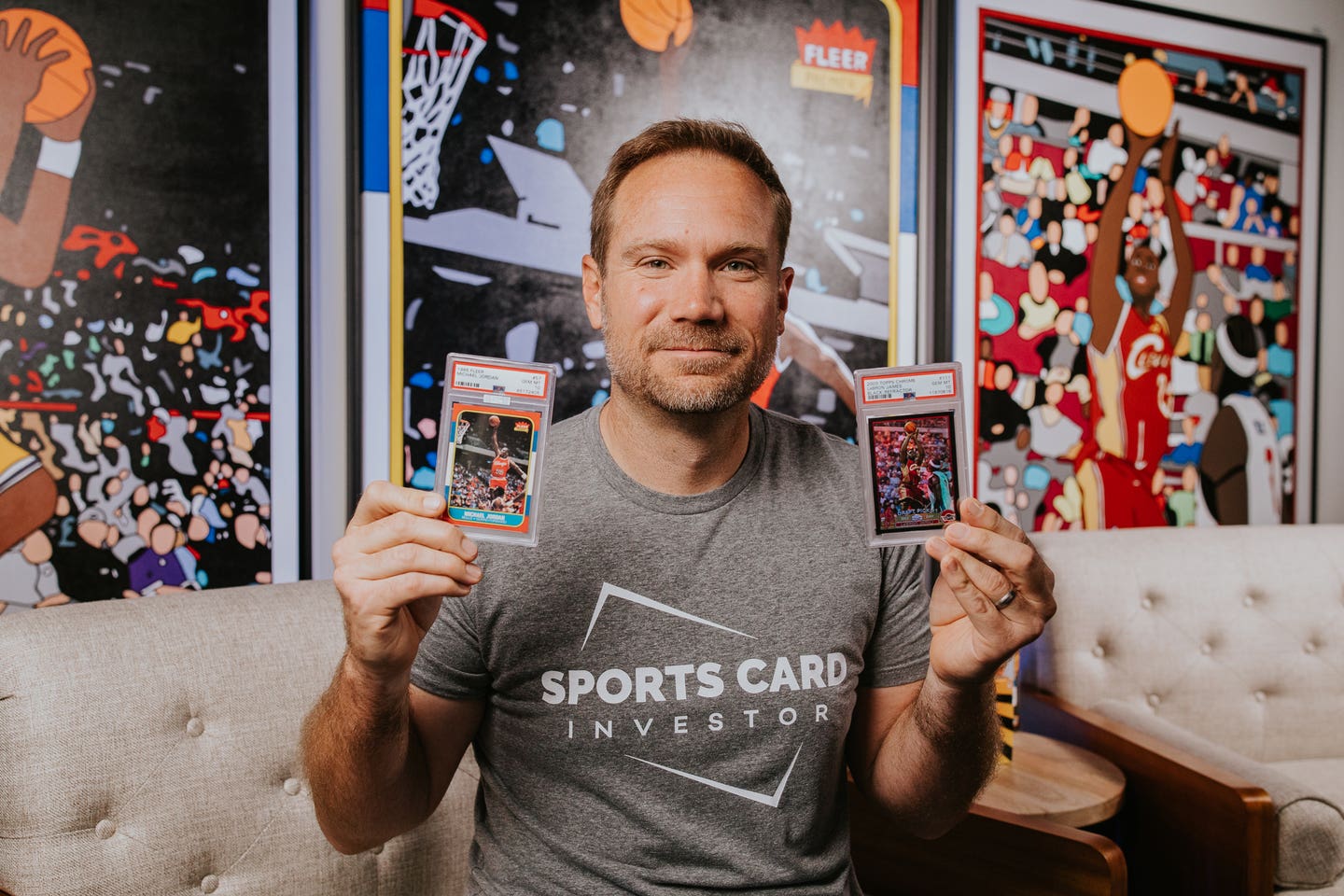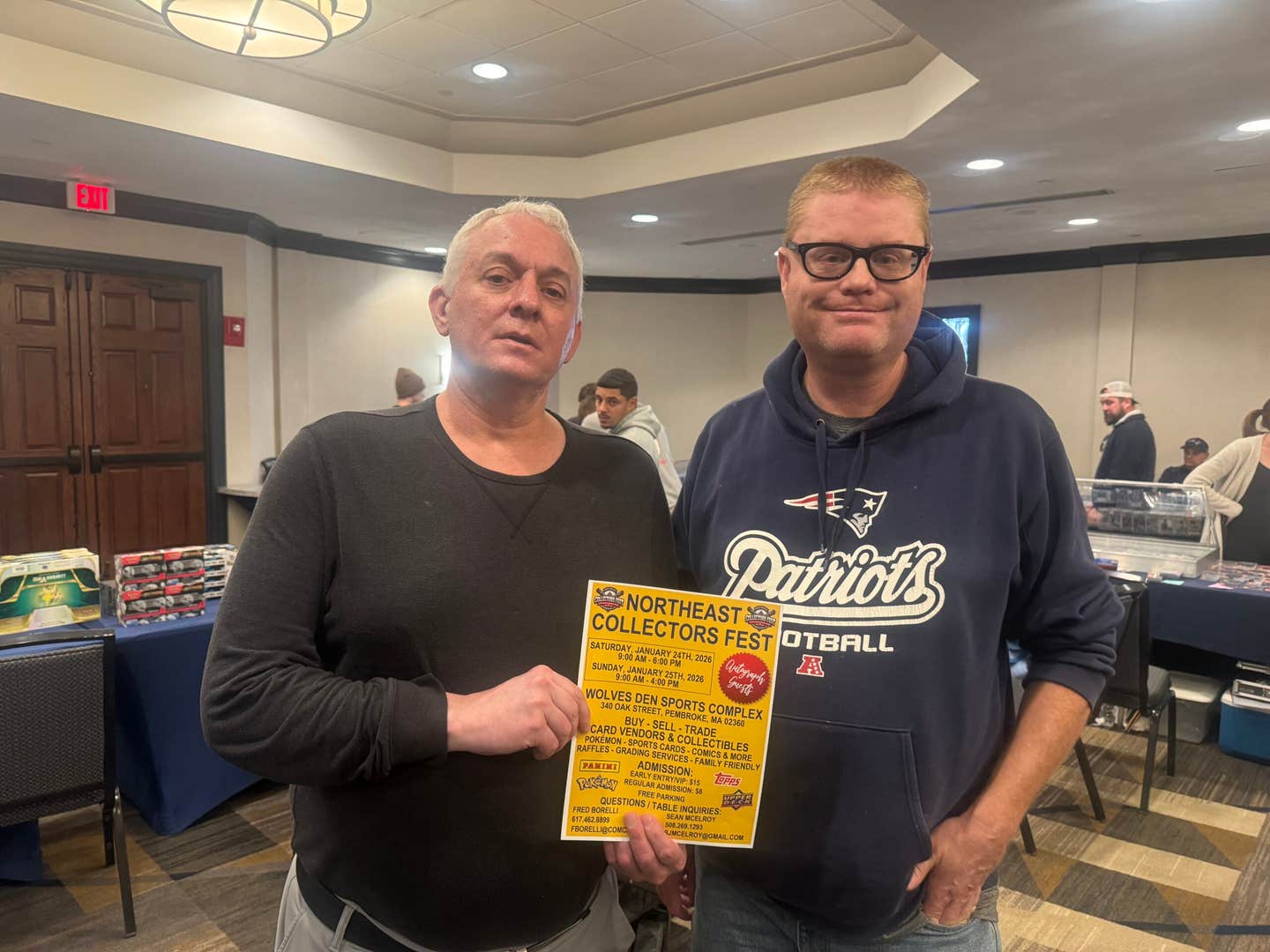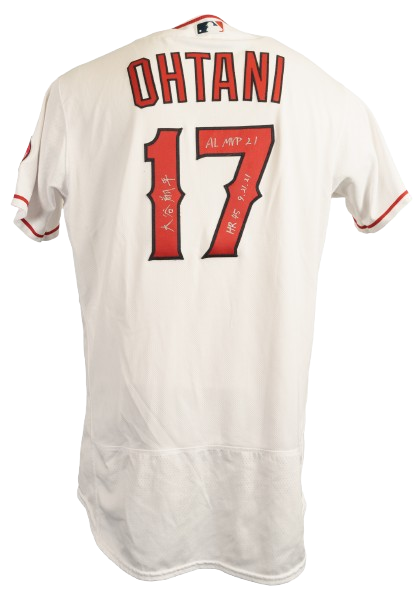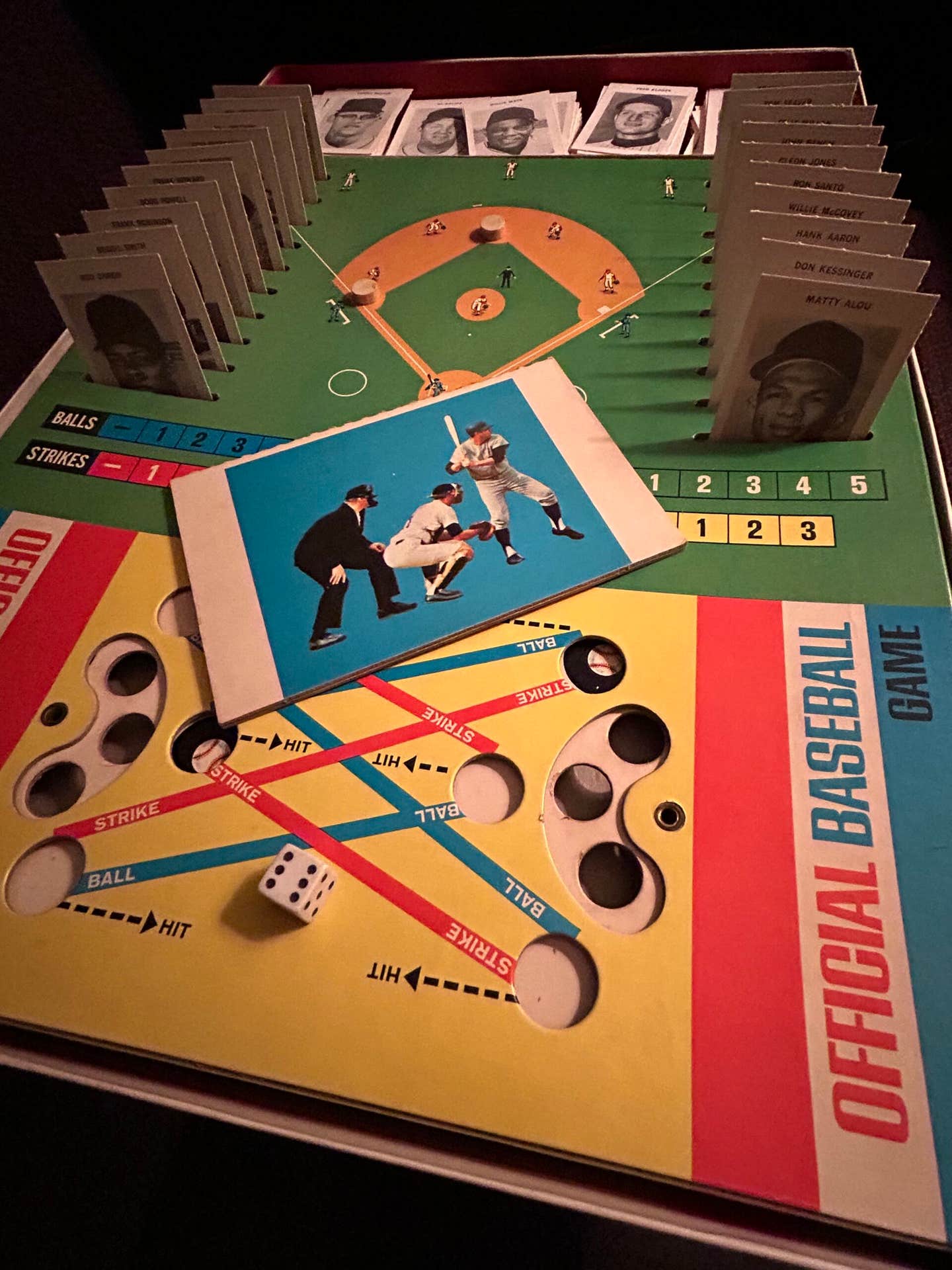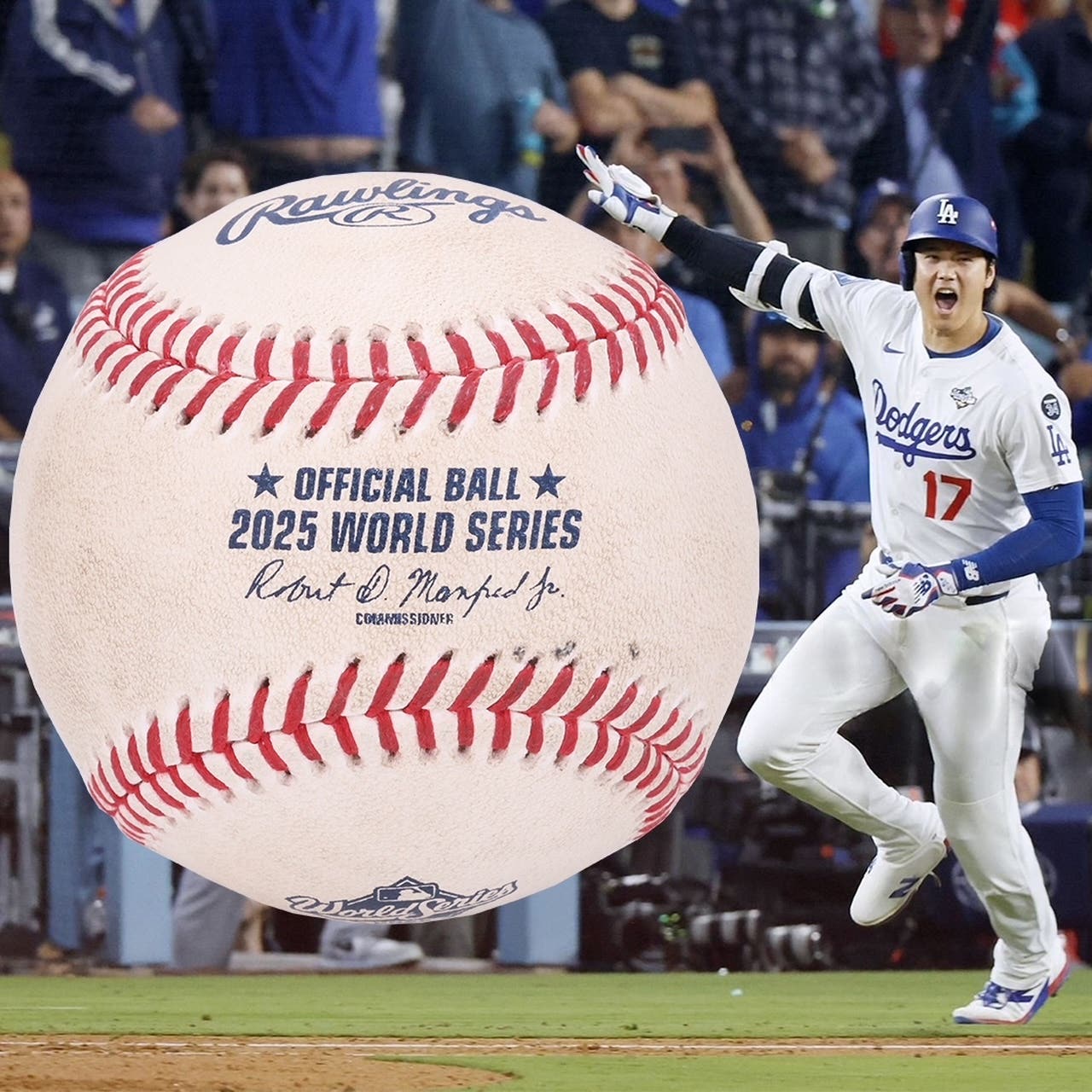Memorabilia
Shemp sig still eludes Boddicker’s collection
His memorabilia collection includes a Mickey Mantle-signed baseball bat, Muhammad Ali-signed boxing gloves and a signed basketball from the original Olympic Dream Team, including Michael Jordan, Larry Bird and Charles Barkley, among others.
His vast collection also includes a Sports Illustrated signed by his all-time hero, Roberto Clemente, and two autographs from baseball icon Babe Ruth.
But no signature from Shemp.
Welcome to Mike Boddicker’s world. The former right-handed pitcher for the Baltimore Orioles, among others, is one of us, an admitted packrat, one who collects just about everything sporting. Last year, for instance, a friend called about an opportunity to get autographs from John Wooden and Boddicker jumped at the chance.
Shemp, of course, is one of The Three Stooges – and the only Stooge sig that has eluded Boddicker.
“I collect the old stuff, but the new stuff is fairly neat,” said Boddicker, who has Ruth autographs on a 3-by-5 card and on a baseball. “If I were a kid nowadays, I’d probably spend every dime I had on cards.”
His collection also includes a Joe DiMaggio rookie card, vintage Ruth cards, and more.
“The cards nowadays have swatches of a jersey or a bat or whatever, but you just can’t beat an autograph,” he said. “I don’t collect as much now as I used to, but my kids certainly do. I had a 10-year period where I was collecting everything I could find.”
What’s the appeal of autographs?
Heroes, he said without hesitation. “The guys who you grew up idolizing, admiring,” he said.
For Boddicker, that starts with Clemente, and also includes Bob Gibson and Sandy Koufax.
“It took me a long time to get a Clemente autograph; I finally got it on a Sports Illustrated,” he said, though he had to trade away a Roger Clemens-signed jersey.
Boddicker has every Clemente card from his playing days, including the 1955 Topps rookie No. 164.
Boddicker’s collection also includes cards of his old coaches and managers, plus Joe Bowman, a pitcher from 1932-45, who later was the scout who signed Boddicker.
“There are several autographs that I’m truly proud to own, such as the softball signed by Leo Mall, a guy who I grew up with, playing baseball with every day – and that was one of the reasons I made it to the majors,” said Boddicker, who also brags about the autograph he has from Dana Kiecker, a Boston Red Sox pitcher in 1990-91, who lived with the Boddicker family.
Boddicker has autographs from Moe, Larry, Curly, Curly Joe and Joe, but not Shemp. And, yes, he is willing to trade for Shemp, just not either of his Ruth autographs.
Boddicker’s autograph wish lists also include members of the 1927 New York Yankees, led by Lou Gehrig, “who was the epitome of a baseball player,” Boddicker said.
Boddicker pitched in the majors from 1980-93, compiling a lifetime 134-116 record, with 16 shutouts and 63 complete games. He started with Baltimore, then went to Boston, Kansas City and, ultimately, Milwaukee in 1993. Boddicker started 309 games and pitched 2,124 major league innings. He recorded 1,330 strikeouts while walking 721.
“I get more fan mail at home now than I ever did when I was playing,” Boddicker said. “I sign it all, though not always immediately. Sometimes I get a little behind, but I always sign the autograph requests and send them back.”
Boddicker’s fan-friendly approach stems from a less-than-pleasant experience his youngest son had after sending an autograph request to Bobby Bonilla.
“He sent him a card and never got a reply,” Boddicker said. “He was really disheartened, so I try to send everything back.”
Boddicker had his best season in 1984, recording his only 20-win season and being named to his only All-Star Team. He won 10 or more for six straight seasons, 1983-88.
He had three career saves, all recorded with Kansas City in 1992. After the 1983 season, he was invited to New Jersey with his wife for a banquet, and they were seated at a table with Ted Williams and Joe DiMaggio. That’s it, just the four of them at the table.
Williams asked Boddicker, “What’s the best pitch in baseball?”
The fastball, Boddicker replied.
Williams countered, saying it was change up, though no one could throw it over the plate more than three times in a row.
“I can,” Boddicker said.
Again, Williams disputed.
Enter DiMaggio, who said, “Sorry, Ted, the kid here could get you out.”
“That made me feel unbelievably good,” Boddicker said.
The dinner-table topic then changed to the curveball and the physics of how it worked. Williams even went so far as to draw on the table cloth what he believed was the physics of why a curve ball breaks.
“If I had been smart, I would have had Ted sign the table cloth for me,” Boddicker said. “That would have been a neat collectible, truly a one-of-a-kind. That was an awesome experience.”
Sadly, Boddicker laments today, he did not get either of their autographs that night.
Boddicker was the MVP of the 1983 American League Championship Series. He also was a Gold Glove award-winner in 1990.
“When I first got called up in Baltimore, John Lowenstein pulled me aside and said, ‘Kid, you might be in the Hall of Fame someday, so, when you sign something, make it legible; people need to know who you are.’ So, from then on, I made sure it was not just M- and B- like a lot of the players do,” Boddicker said. “I wanted people to actually be able to read my autograph. John Lowenstein gets credit for that, or blame depending on how you look at it.”
Boddicker’s collecting craze also has included old fishing lures, fishing reels, hunting items, plus his dad’s razor and class ring, and items from his grandfather as well.
Boddicker has passed the collecting bug to his son James. It was father and son at the Tristar Productions’ show last fall in Kansas City. Dad was signing, while his son was shopping.
“I’m just a big kid,” he said. “The people who I really idolize and respect; those are the people whose autographs I’d really like to have. Better yet, talk to them, such as, Muhammad Ali.”
Actually, Boddicker did have a lengthy talk with Ali once. He was in the Orioles’ minor league camp years ago when he got a call that his wife went into labor. So Boddicker boarded a plane for home, but was stopped in Chicago due to fog.
Boddicker and Ali, and members of Ali’s entourage, spent the night talking in an airport lounge. “We talked for hours,” he said. “It was really neat, though I missed my son being born.”
About seven years later in Arlington, Texas, Ali saw Boddicker and, “His eyes lit up,” the former pitcher said. Ali then waved over Boddicker and, to Boddicker’s surprise, actually asked Boddicker if he remembered him from the airport.
“How can you forget Muhammad Ali?” Boddicker said. “I was shocked he remembered me.”
Boddicker made his rookie card debut in 1981 Topps on card No. 399. He appeared on countless cards over the next 12 years.
“I think cards are neat; I really do. However, the mass production kills cards,” he said. “The whole card market is just different than it once was. Much like baseball itself. The game now is different from when I played. And the cards now are just different now from when I collected and also from when I played. I ruined a bunch of cards as a kid, putting them in the spokes of my bike, including the Mantles and Roses and players like that.
“My all-time favorite set was the 1971 Topps baseball, with the black borders,” he continued. “But to find any of those cards n good shape is nearly impossible. I’ve got a lot of ’71s that are in really good shape, but there’s no way I’ll be able to complete the set.”
Boddicker added: “The cards being produced nowadays are so nice, such nice quality. Back when I was a kid, you traded cards or just kept them around; we never had plastic sleeves for the cards or acrylic cases. Shoot, we just threw them in a shoebox. The value of cards when I was a kid was not discussed. No one ever really wanted to know, ‘How much is that worth?’ which seems to be a standard question nowadays.”
Boddicker evaluated his hobby status in true card lingo.
“I was a middle-of-the-road player so, yes, I was a common,” he said. “Still, it’s an honor to be on a baseball card. I remember the $5 check we received from Topps to appear on cards while in rookie ball. I still have the check. Back then, they didn’t even have to pay us; we were just thrilled to be on a card.”
His playing days
Boddicker was the Baltimore superstar in Game Two of the 1983 ALCS. He pitched a five-hit shutout, striking out 14 as the host Orioles blanked Chicago, 4-0.
The Orioles needed four games to win the best-of-five series over the White Sox, then defeated Philadelphia in the World Series in five games.
“The 1983 World Series was probably the thing, the moment,” Boddicker said. “It was the most wonderful experience you could have. I think I was a good, solid pitcher who kept his team in the games and gave you a lot of innings and, hopefully, was a good teammate.
“The strength of my game on-field was the old Baltimore adage: Throw strikes, change speeds and location. And that’s what I did, along with durability.”
The key to Boddicker’s ALCS gem, he joked, was having Durwood Merrill as the home plate umpire.
“God bless his soul, he had a nice strike zone that night and I had a really good curve ball that night,” Boddicker said. “Our offense was clicking on all cylinders; our pitching staff was locked in in that series, that whole year.
“I was a rookie then and all I was trying to do was pitch as well as Scott McGregor, who had lost the first game of the ALCS,” he continued. “I just wanted to keep us in the game so that we were close by the seventh, and then we could win the game. The World Series was a lot of fun. That Baltimore pitching staff was very difficult to defeat.”
Boddicker pitcher a three-hitter in Game Two of the 1983 Series. Meanwhile, he went to the 1984 All-Star Game in San Francisco, but did not pitch.
“Thank God, I didn’t pitch because it was so cold there,” he said. “I had the pleasure of going to get coffee for Phil Niekro throughout the game. Gosh was it cold there. It would have been nice to pitch in the game, but, I don’t know if I could have gotten loose that late because it was freezing.
“Knowing what I know now, that it would be my only All-Star Game, yeah, I would have liked to have gotten in,” he continued. “But not at the time.
Sure, I won 20 games in 1984, but baseball is a team game, so the success of the 1983 team was more meaningful, more rewarding. The big thing I’ll always remember was, the people. Your teammates become your family – on all of the teams I played for.
“I was fortunate to last as long as I did given the crap that I threw,” he continued. “It was a great time; that’s for sure. Every little kid’s dream is to play in the big leagues. I’m fortunate to have had that dream come true. I’m 49, yet there are times now when I know I could go out there and still get people out. I wish the kids playing now would understand that you do not have to throw every pitch as hard as you can and only last five innings; you can complete games.”
Boddicker’s toughest challenge came from – believe it or not – Ron Hassey, a .266 lifetime hitter.
“Hassey probably hit .900 against me,” Boddicker said. “The first home run I gave up in my career came on the second-to-last game of the season in 1980. It was Ron Hassey, who hit a three-run home run off me. I tried everything to get him out throughout my career, but just couldn’t get him out.”
Boddicker’s next toughest outs were Rance Mulliniks, Mark McGwire and Kent Hrbek.
“Kent seemed to be able to read my mind,” Boddicker said. “He knew what I was going to throw before I threw it.”
Conversely, Boddicker said Graig Nettles, George Bell and Kirby Puckett were his easiest outs.
Post-baseball
Boddicker lives in Kansas City, and owns a few farms in Kansas and Iowa. He also has invested in a few restaurants and a baseball team with Cal Ripken, Jr.
Boddicker spent time this summer in Iowa, helping with a baseball movie: “The Final Season,” which released in April. The movie is about Boddicker’s hometown: Norway, Iowa, sort of a baseball version of Hoosiers. The school was going for its 20th state championship in its final season.
Boddicker’s youngest son, James, has a part, playing the younger brother of the team captain; he also has a few lines. Both of Boddicker’s daughters also are in the film. But not Boddicker himself, though, he did a lot of the baseball stunt work.
“I did not want to be on-camera ... because I have a face for radio,” he joked. “I didn’t need to be on-camera; I had plenty of chances to be on-air during my playing career. The movie was a lot of fun, though I was wore out by the time it was over. And, I lost 25 pounds during filming.”
Boddicker is a broadcaster in Kansas City and also enjoys hunting and fishing.



